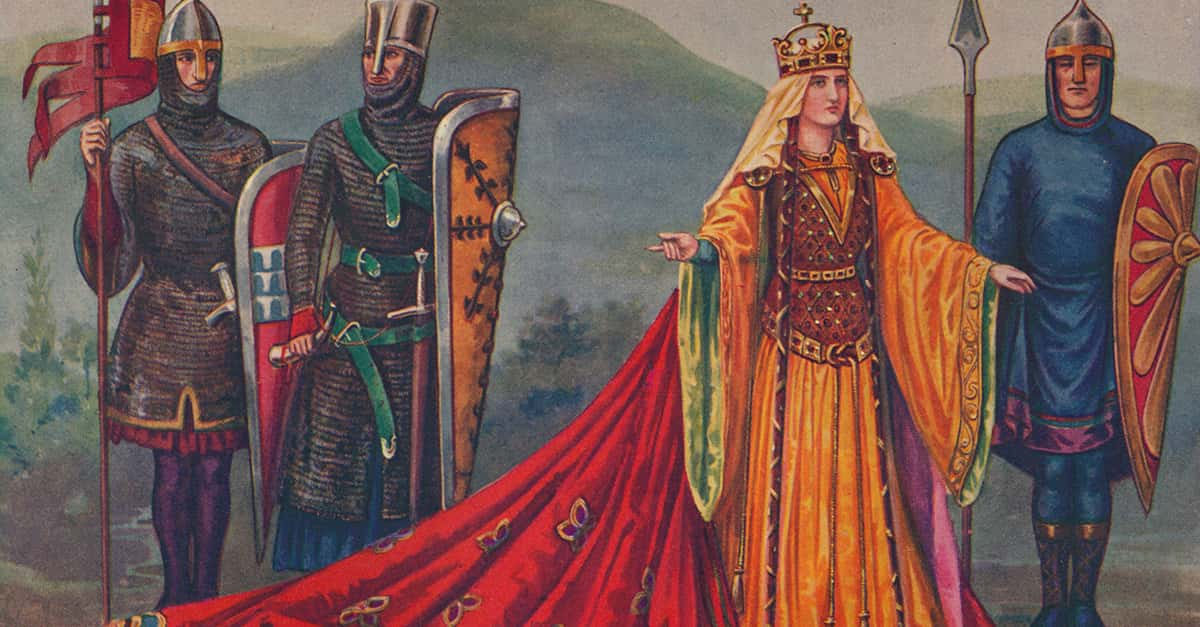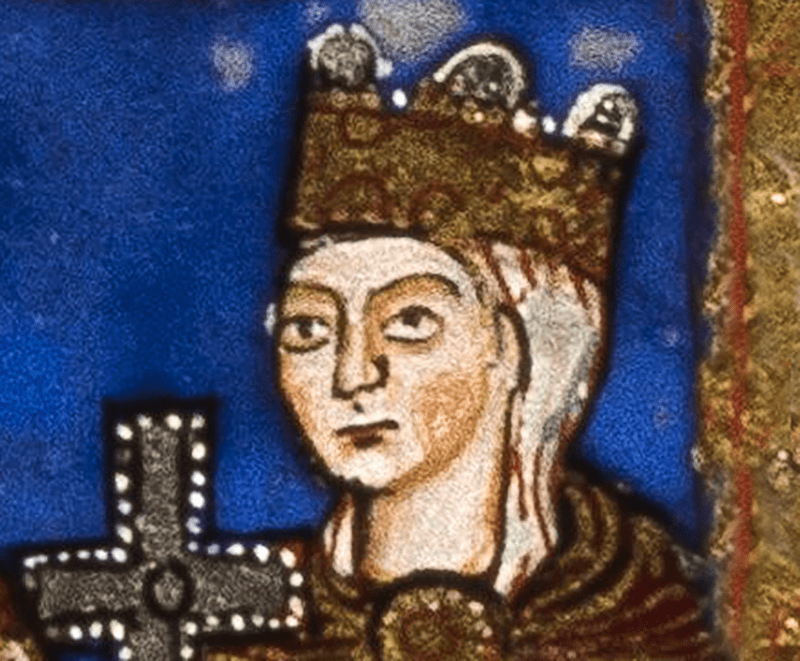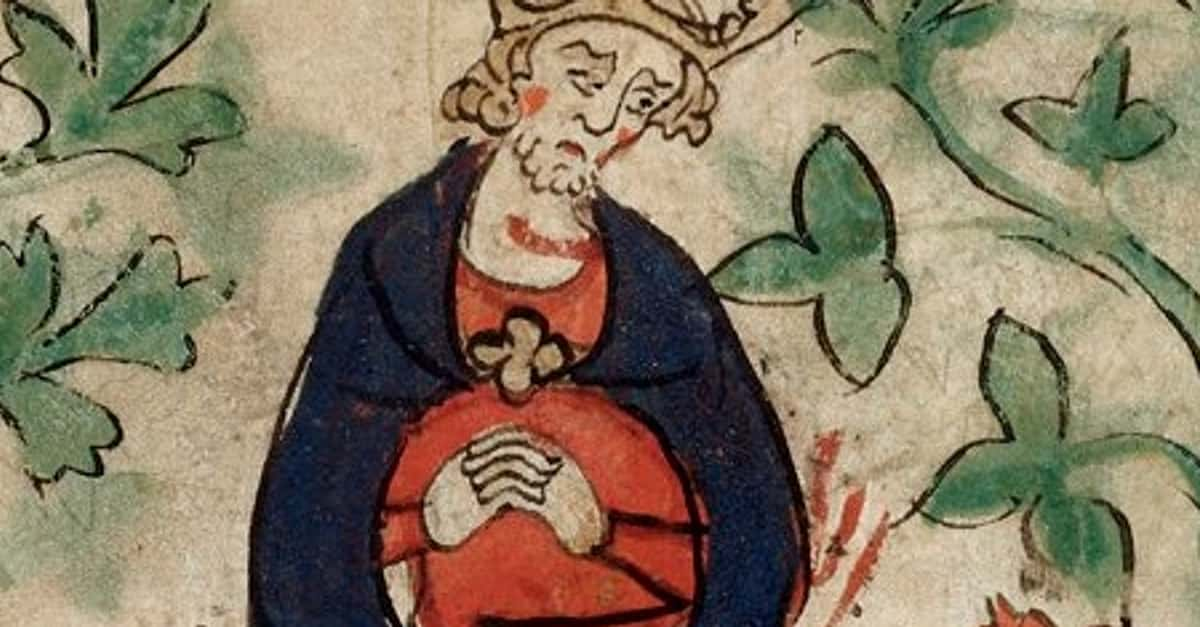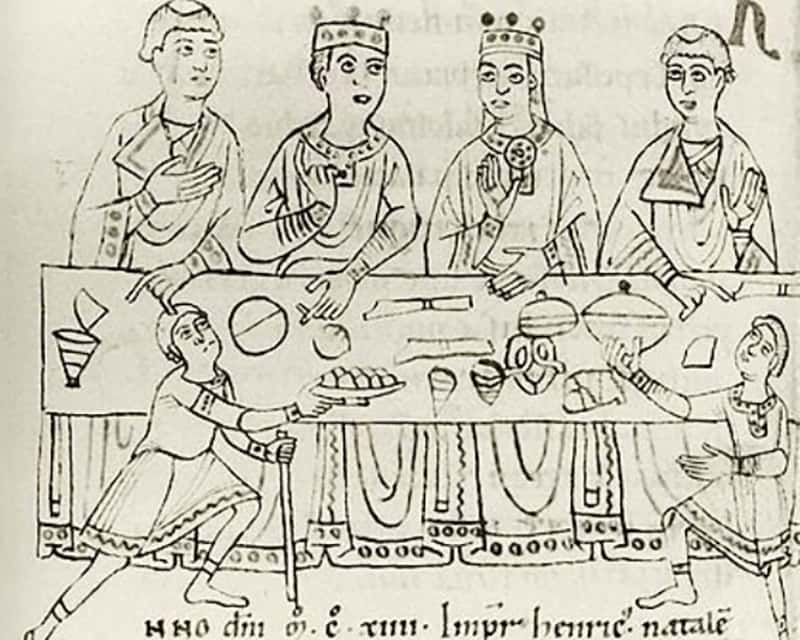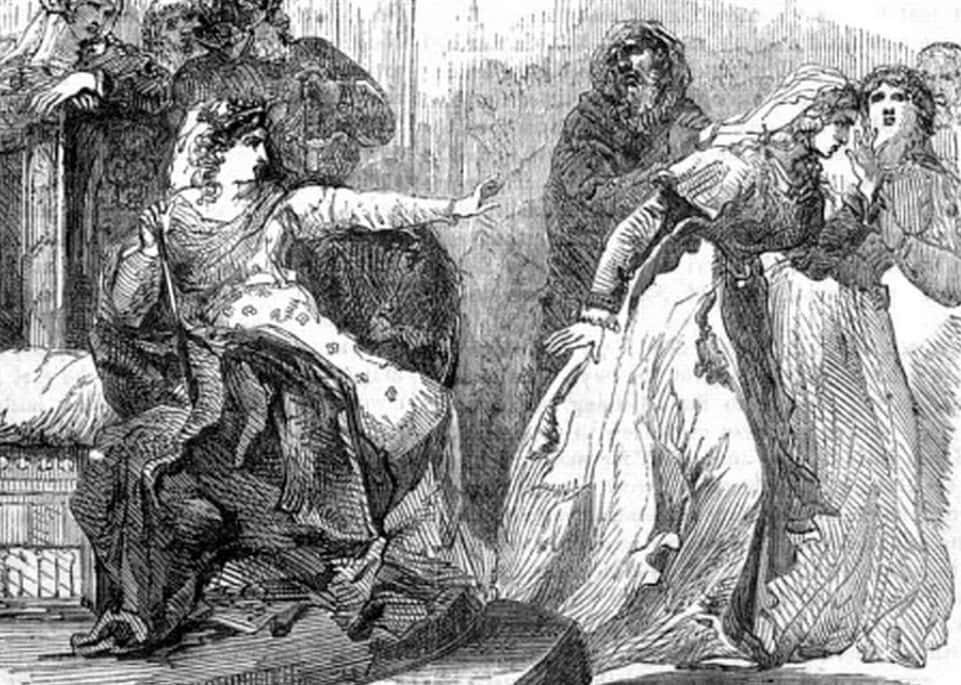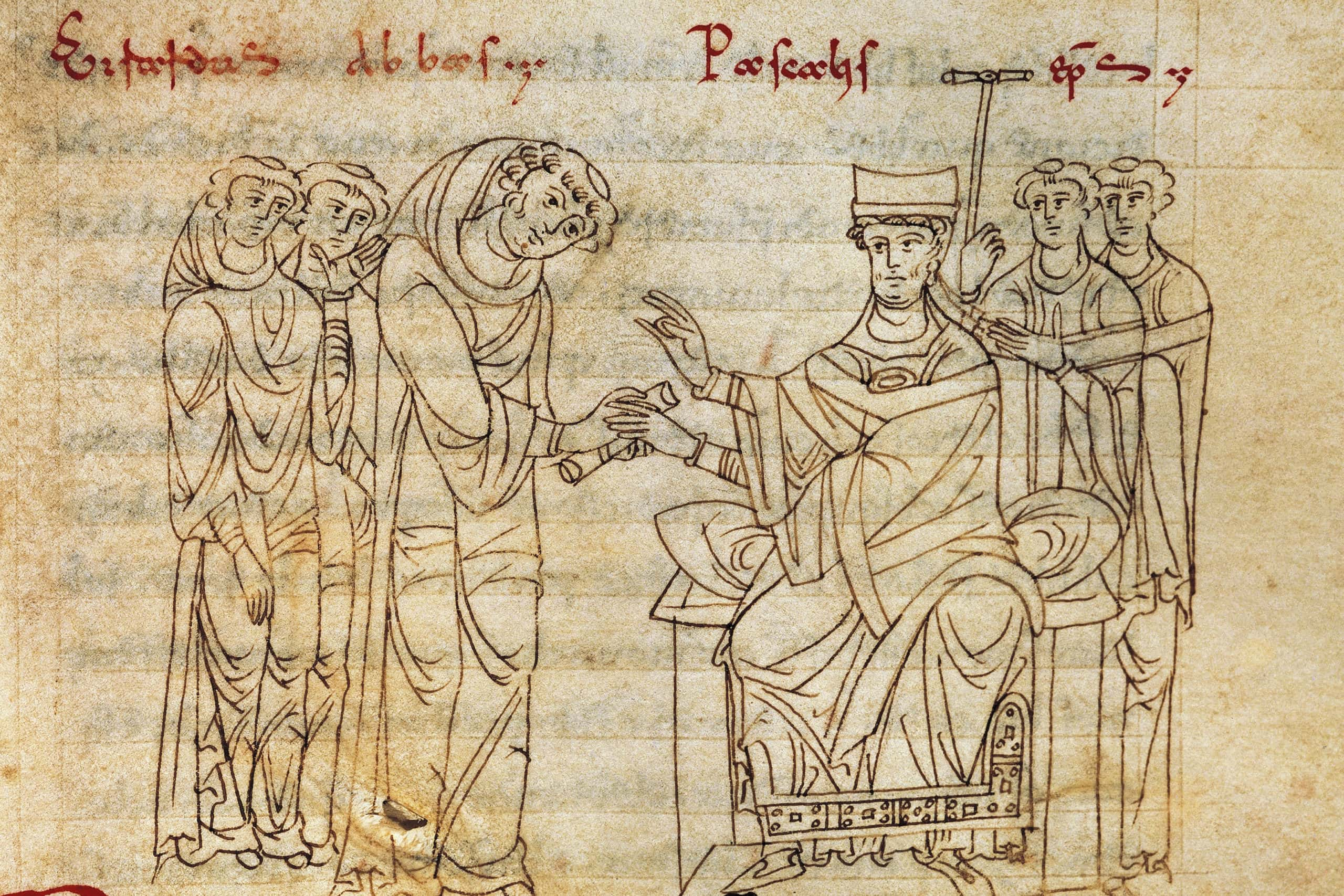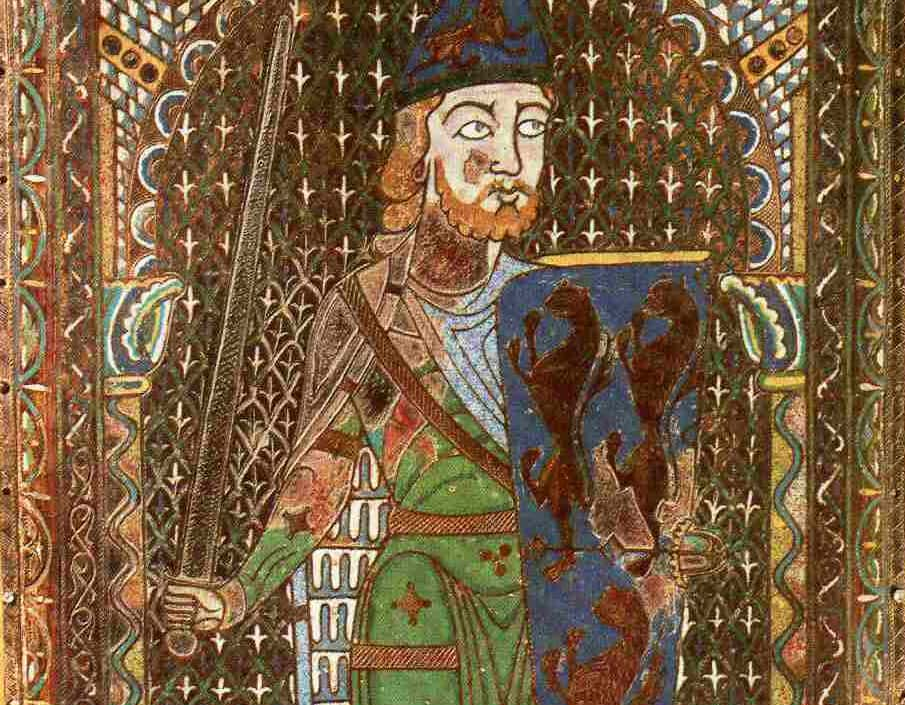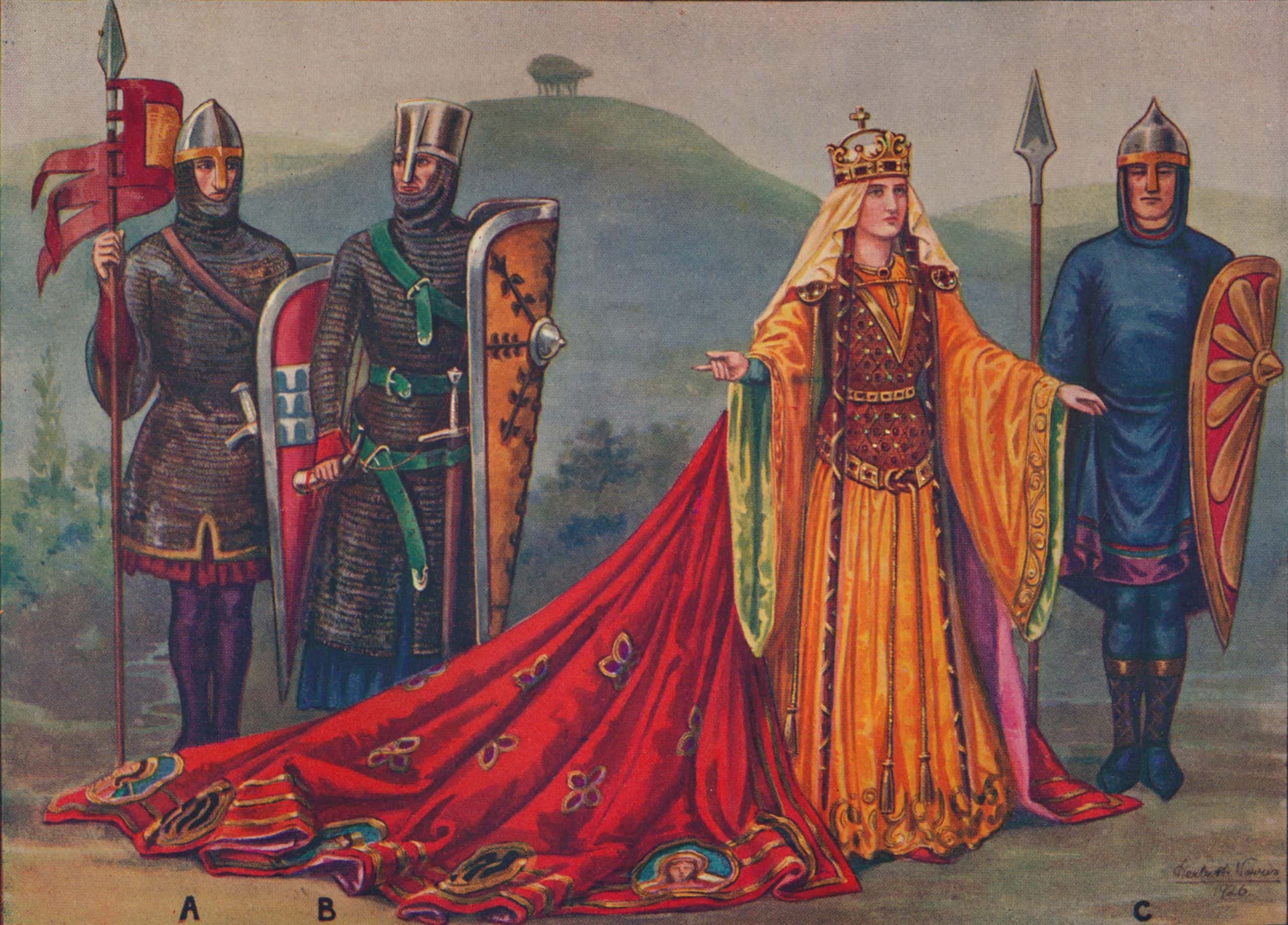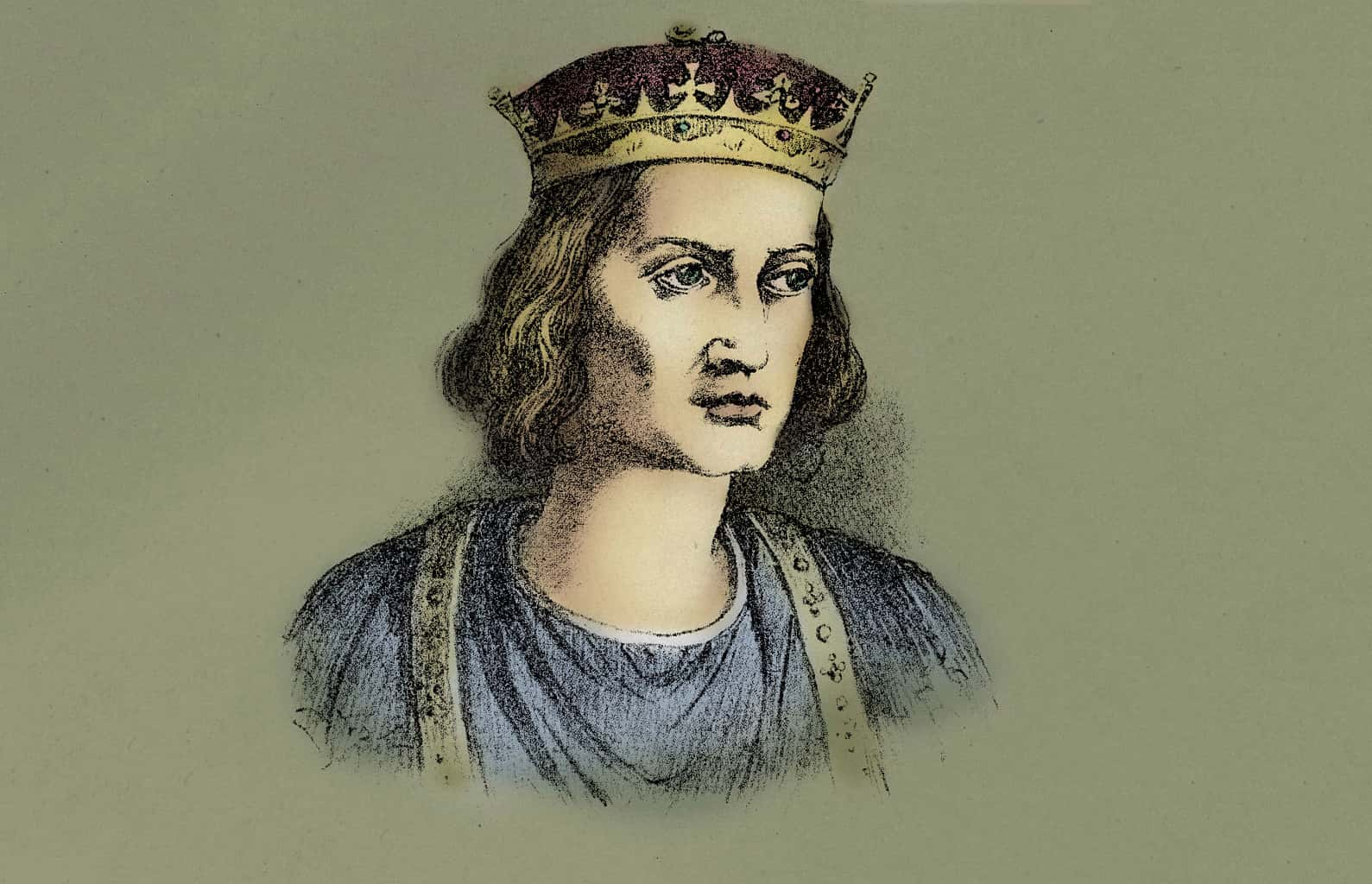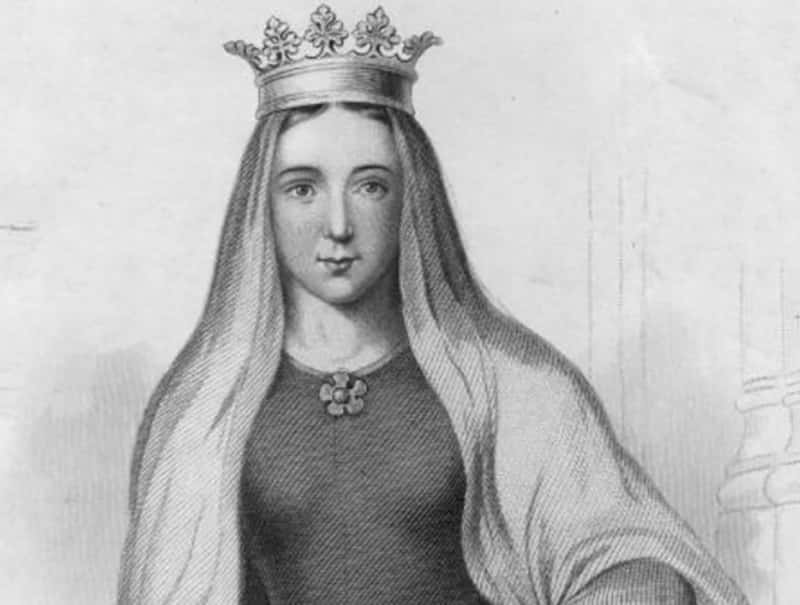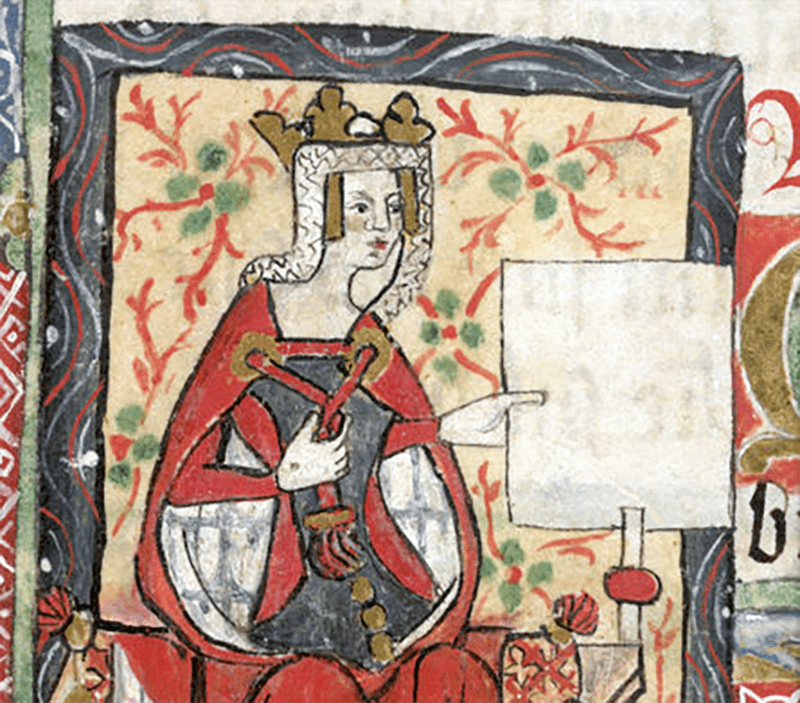Empress Matilda, The Warrior Princess
Whoever says that women have no place in politics or as a warrior have clearly never heard the story of Empress Matilda. A Queen by the age of 10 and a warrior shortly thereafter, Matilda’s actions rocked the European continent—and all before she even became an Empress! You don’t want to miss the story of one of the most powerful women that the world has ever known.
1. She Inherited Her Family’s Problems
Thanks to her messy family history, as soon as baby Matilda entered the world in the year 1102, she became part of a living nightmare. Her grandfather was the infamous William the Conqueror, who successfully invaded England from Normandy, creating an empire that stretched into Wales. At first blush, inheriting a huge kingdom sounds like a pretty sweet deal, but things wouldn't be that easy for baby Matilda.
2. Her Grandfather Set Her Up For Failure
You see, ol' grandad couldn't hold the kingdom together. The Anglo-Norman elite—barons that arose in the wake of her grandfather’s invasion—had a nasty habit of switching sides and backing whoever promised them the most economic gain, even if it meant turning against Matilda's grandad. When her grandad finally croaked, her dad (Henry I) entered a dangerous world of politics—which Matilda soon became a part of.
3. She Became A Bargaining Chip
In 1108, six-year-old Matilda became a pawn in her dad's political game. Around that time, King Henry V of Germany sent envoys to Normandy, proposing that Matilda should marry him (how romantic). Matilda's dad, excited at the thought of the family becoming a part of a prestigious royal house, agreed. For Matilda, the aftermath was devastating.
Her father quickly packed his little girl up, said goodbye, and sent her off to Germany in February 1110. Little Matilda was about to become a queen.
 Wikipedia
Wikipedia
4. She Was A Child Bride
On April 10, Matilda officially met her future husband. Since Matilda was still just a child, she went into the care of the archbishop of Trier, from whom she learned German culture and methods of governance. By January 1114, 12-year-old Matilda was "ready" to marry the 24-year-old Henry V. After an extravagant wedding in the city of Worms, Matilda entered public life in Germany—and what she did next shocked them all.
5. She Was A Political Prodigy
If you're at all familiar with the life of child rulers, you know that they generally go pretty poorly. Matilda, however, defied all odds by proving herself a capable decision-maker. By 1116, Matilda played a powerful part in the imperial government; she dealt with petitioners, sponsored royal grants, and even took part in royal ceremonies. Matilda took to politics like a fish to water, and she was barely getting started.
6. She Battled Powerful Men
As if dealing with the day-to-day administration of a kingdom wasn't an impressive enough feat for 14-year-old Matilda, the little girl took things a step further in early 1116. You see, Matilda's hubby and the Pope at the time, Paschal II, were engaged in a struggle for power. Upon marrying Henry V, Matilda inherited her hubby's beef with Pope Paschal II, and she wasn't about to let her husband keep all the fun of overthrowing the Pope to himself…
 The Pillars of the Earth (2010), Tandem Communications
The Pillars of the Earth (2010), Tandem Communications
7. She Was A Child Warrior
As the power struggle between Matilda's husband and Pope Paschal II worsened, the wife-husband duo decided it was time to settle things with the Pope once and for all. In early 1116, the two marched their men over the Alps, where they established control over northern Italy. In 1117, they entered Rome, the seat of the Pope's power.
In the face of Matilda and her husband's overwhelming might, Paschal fled. Matila knew exactly what to do next…
8. She Became An Empress
In Paschal's absence, Matilda made the ultimate power move. She and her husband successfully established an antipope named Gregory VIII. In return, Gregory VIII crowned Matilda and her husband, allowing Matilda to claim the title of empress of the Holy Roman Empire. Although there were some questions as to whether Matilda was legitimately an empress, most (wisely) allowed her to use the title without question.
As the years passed, Matilda proved herself more than worthy of the title.
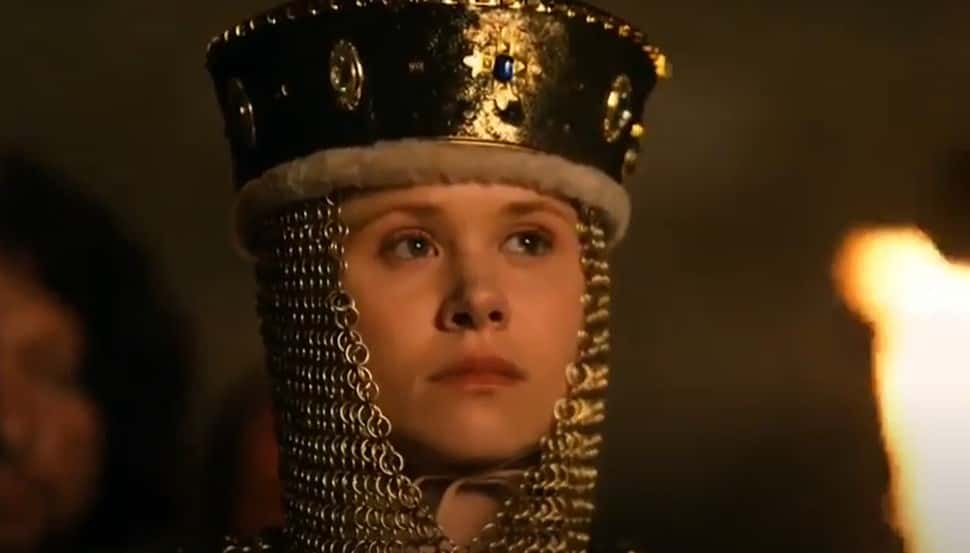 The Pillars of the Earth (2010), Tandem Communications
The Pillars of the Earth (2010), Tandem Communications

History's most fascinating stories and darkest secrets, delivered to your inbox daily.
9. She Was A Powerful Ruler
In 1118, Matilda's husband returned to Germany, leaving the young girl behind to govern Italy as his regent. For the next two years, Matilda likely gained a considerable amount of experience in governance, and likely played an active and practical role in Italy's political affairs. This was all well and good, but by 1122, Matilda ran into a problem that even her brilliant political mind could not solve.
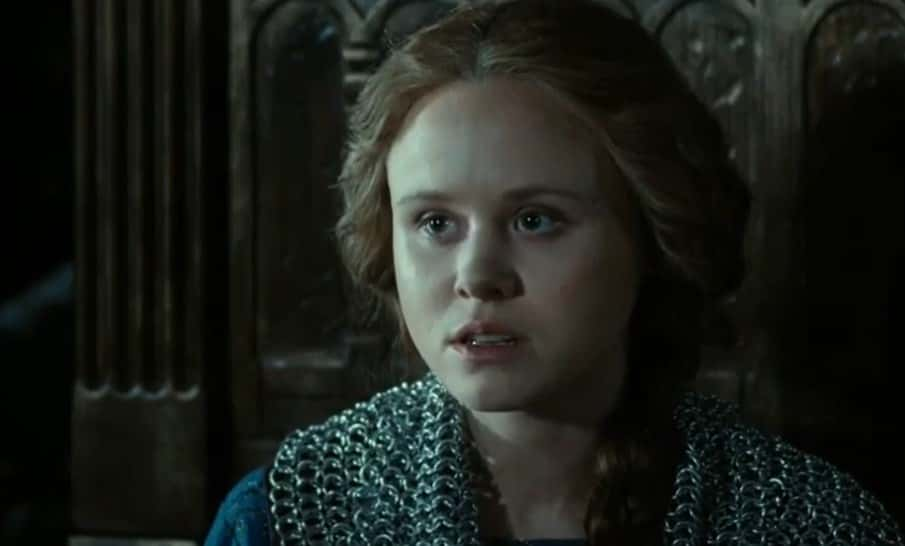 The Pillars of the Earth (2010), Tandem Communications
The Pillars of the Earth (2010), Tandem Communications
10. She Had No Heir
Although neither Matilda nor her husband were infertile, their marriage did not result in an heir. The reasons why are unclear (although her contemporaries blamed her childless state on her husband's sins against the Church). Whatever the reasons were, being childless left Matilda in a precarious position, and soon enough, things went from bad to worse.
Her husband began suffering from cancer. The life that Matilda built up for herself now hung on a thread, and that thread was about to snap.
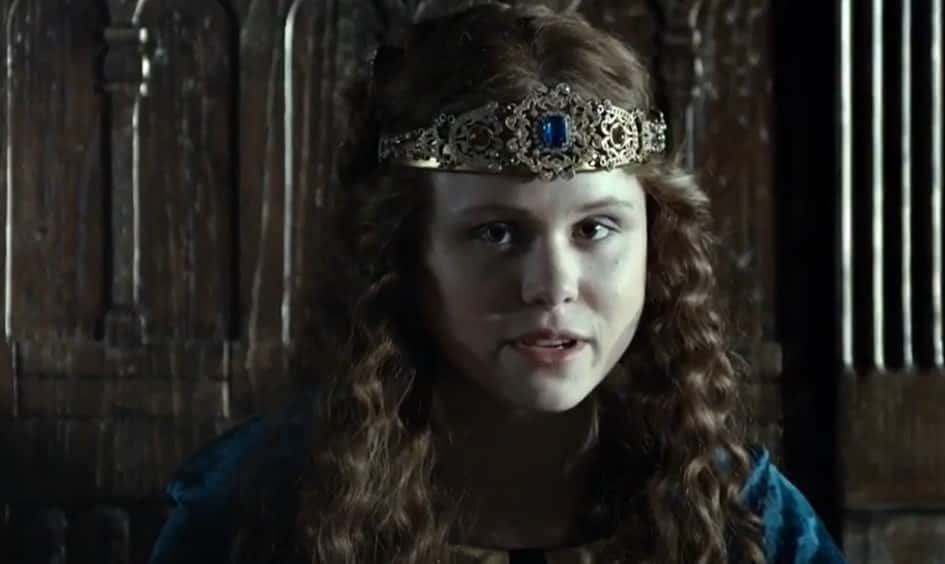 The Pillars of the Earth (2010), Tandem Communications
The Pillars of the Earth (2010), Tandem Communications
11. She Became A Widow
On May 23, 1125, Matilda's husband died. This left Matilda under the protection of their nephew, who inherited all of her husband's estates. As if that wasn't bad enough, Lothair of Supplinburg, an enemy of her husband's, became the new Holy Roman Emperor. At just age 23, Matilda went from having it all to losing nearly everything. What she decided to do next would decide the fate of her future.
 The Pillars of the Earth (2010), Tandem Communications
The Pillars of the Earth (2010), Tandem Communications
12. She Took Her Own Path
As you can imagine, being a childless widow in the early 12th century left Matilda with very few options. Realistically, Matilda could either become a nun (boring!) or she could remarry. Some German princes did offer Matilda their hand in marriage, but the feisty Empress turned them all down. Instead, she gave up all her estates, packed her valuables, and went back home to Normandy. Her life was about to change once again.
 The Pillars of the Earth (2010), Tandem Communications
The Pillars of the Earth (2010), Tandem Communications
13. She Found Another Chance
When Matilda left Germany, she seemed to have no intention of returning to the kingdom she once ruled—and she likely had a very good reason. Back in 1120, Matilda's younger brother (and heir to the English throne) perished while aboard a vessel called the White Ship. With her brother gone, Matilda's dad was in a bind. He tried to sire another heir, but was unsuccessful. Everything changed when Matilda went back home to Normandy.
 The Pillars of the Earth (2010), Tandem Communications
The Pillars of the Earth (2010), Tandem Communications
14. She Tried To Divert Disaster
When Matilda showed up on her dad's doorstep, he immediately flew into action. In a controversial move, he declared that Matilda would be his rightful heir should he fail to have a son. On Christmas of 1126, a gathering of Anglo-Norman barons swore to recognize Matilda and any of her future legitimate heirs. Phew! Succession crisis averted, right? Well... Not exactly.
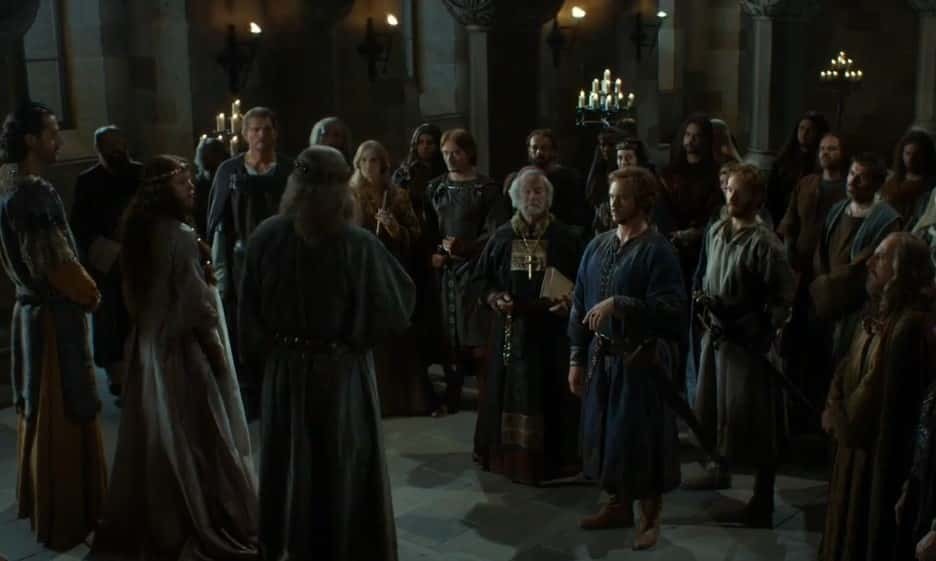 The Pillars of the Earth (2010), Tandem Communications
The Pillars of the Earth (2010), Tandem Communications
15. Her Dad Controlled Her Fate
Although Matilda was clearly more than capable of making strategic political decisions by herself, being back home put her fate under her father's control once more—and that meant he once again used her for his own political gains. This time, Matilda's father decided to marry her off to Geoffrey of Anjou, the eldest son of Count Fulk V of Anjou, in order to secure the southern borders of Normandy. Matilda was less than happy with this proposal.
16. She Had Too Much Pride
First, the age gap between Matilda and her prospective husband was huge; she was 25, and Geoffrey was only 13! Now, given her last marriage, she probably could've looked past that, but Matilda felt that marrying the son of a mere count did little to bolster her status as an imperial empress. Matilda's father couldn't have her turning down this important marriage alliance, however, so he took matters into his own hands.
 The Pillars of the Earth (2010), Tandem Communications
The Pillars of the Earth (2010), Tandem Communications
17. She Married A Child
How exactly did he convince her? Simple. He “gifted” (wink wink) Matilda several castles in Normandy. In addition to her father buttering her up with gifts, Matilda got an extra little nudge from the Archbishop of Tours. This one-two combo ended up working on Matilda, and she acquiesced to the marriage. In May 1127, Matilda was formally betrothed to Geoffrey, and the two married a year later in June. However, their honeymoon period was…short, to say the least.
 The Pillars of the Earth (2010), Tandem Communications
The Pillars of the Earth (2010), Tandem Communications
18. Her Father Tricked Her
Simply put, Matilda and Geoffrey didn’t exactly like each other. On top of that, it turned out that Matilda’s dad exploited a little loophole when he gifted her those castles; while he agreed to let both Matilda and Geoffrey have the castles, he didn’t specify when, and Matilda’s dad wasn’t in a hurry to clarify that little detail either. The proud Empress had little patience for either men, which prompted her next move.
 The Pillars of the Earth (2010), Tandem Communications
The Pillars of the Earth (2010), Tandem Communications
19. She Left Her Husband Behind
Unimpressed with her new husband, Matilda made a scandalous decision. She legged it back to Normandy soon after the marriage. Matilda’s dad pretty much blamed the entire fiasco on Geoffrey, but he needed Matilda to play nice with her new husband. After a few years, Matilda reconciled with Geoffrey in 1131. In addition, the Anglo-Saxon barons swore another round of oaths to Matilda.
Her position now seemed better than before, and what happened in 1133 only strengthened her claim.
 The Pillars of the Earth (2010), Tandem Communications
The Pillars of the Earth (2010), Tandem Communications
20. She Did Her Duty
In 1133, Matilda finally gave birth to that all-important heir. The birth of an heir was likely a relief for Matilda and her family; her dad, in particular, was absolutely delighted by his grandson Henry II, and even visited Matilda after the birth. Just one year later, Matilda gave birth to another son, who she named Geoffrey. However, the birth of her second son came with its own set of dangers.
 The Pillars of the Earth (2010), Tandem Communications
The Pillars of the Earth (2010), Tandem Communications
21. She Risked Her Life
Childbirth in Matilda’s day was a risky venture for both the baby and the mother, and the birth of her second son really drove that point home. The birth of Geoffrey was hard on Matilda, and pushed her body to the brink. Things got so bad that the empress arranged her will, and even argued with her dad over where they should bury her. Everyone waited with bated breath as the days passed by for the ailing Empress…
 The Pillars of the Earth (2010), Tandem Communications
The Pillars of the Earth (2010), Tandem Communications
22. She Suspected Betrayal
Luckily, Matilda recovered from her ordeal. In the aftermath of Matilda’s brush with the other side, her dad probably insisted that the barons renew their oaths to her again. This ended up going totally haywire. Matilda began to suspect that the support for her claim to the English throne wasn’t as strong as she thought. After all, why insist on so many oaths if their loyalties were genuine? Matilda decided it was time to confront her dad.
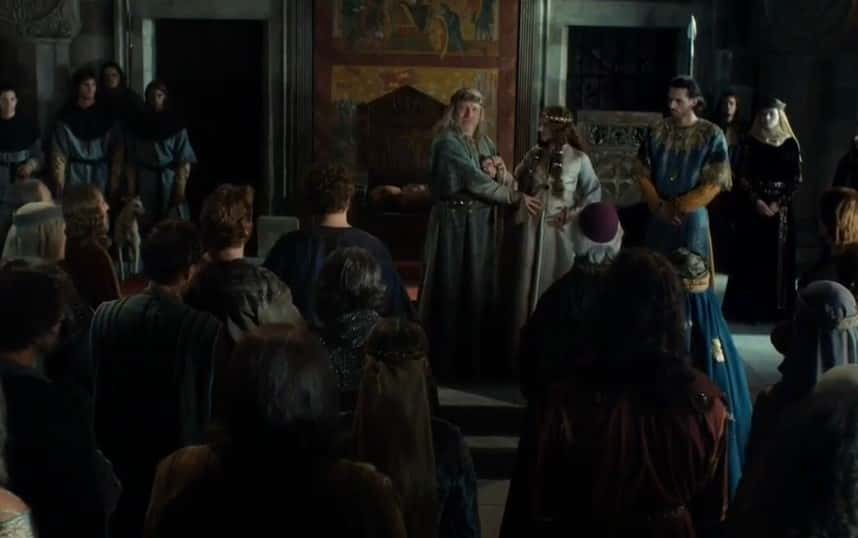 The Pillars of the Earth (2010), Tandem Communications
The Pillars of the Earth (2010), Tandem Communications
23. She Made Her Move
In 1135, Matilda and her husband went to her dad with a proposal. Why not allow Matilda to have the immediate use of the royal castles in Normandy? In fact, they should demand that the Norman nobility immediately swear loyalty to her. That way, Matilda would be in a strong position after her dad kicked the bucket, and she wouldn’t have to worry as much about the consequences of the barons betraying her.
Well, Matilda’s dad did not take kindly to her suggestion…
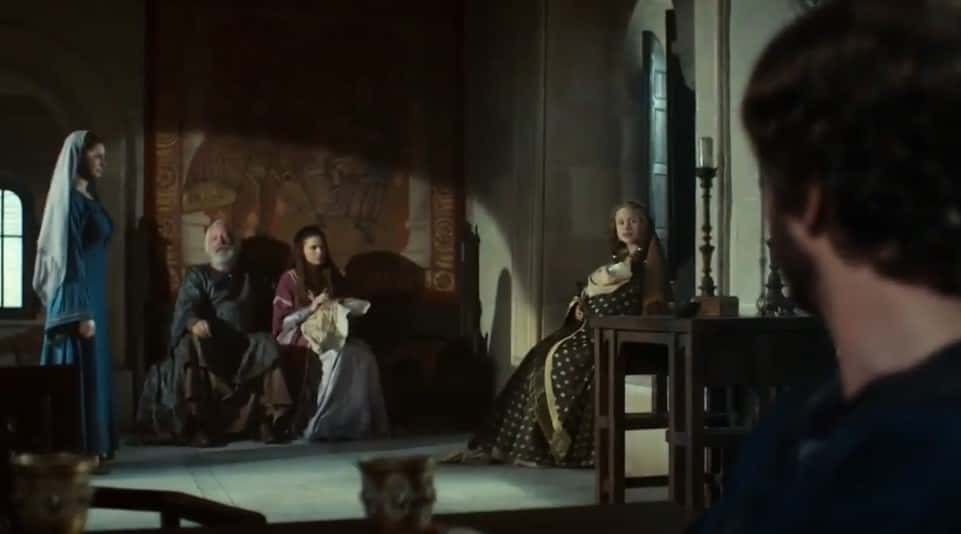 The Pillars of the Earth (2010), Tandem Communications
The Pillars of the Earth (2010), Tandem Communications
24. She Turned On Her Family
Matilda’s proposal royally angered her dad. He refused, likely because he feared that Matilda’s husband would try to seize Normandy while he still lived. This put a huge strain on Matilda’s relationship with her father. Unsurprisingly, when the opportunity arose for Matilda to strike back at her father, she took it. A rebellion broke out in southern Normandy, and Matilda joined the fray—on the side of the rebels. She was ready to seize power by any means necessary.
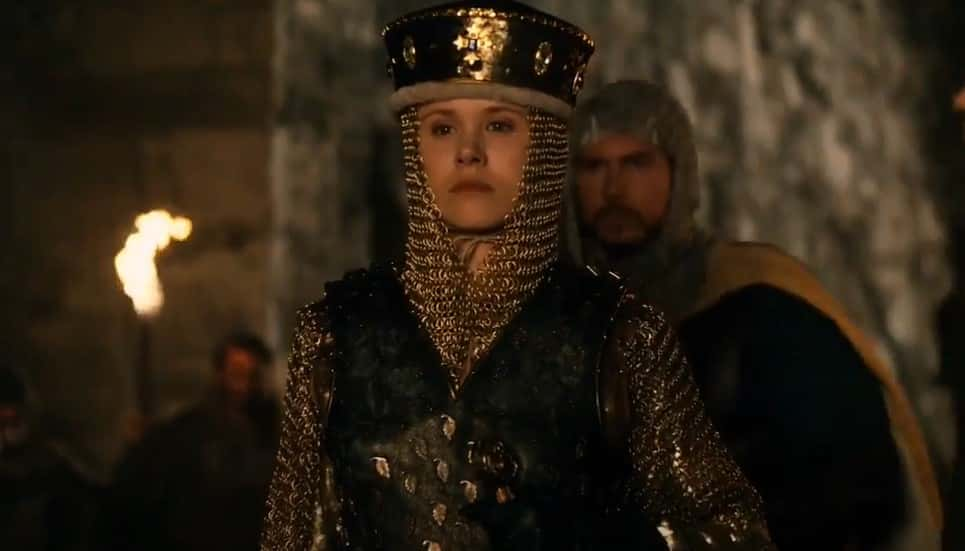 The Pillars of the Earth (2010), Tandem Communications
The Pillars of the Earth (2010), Tandem Communications
25. Tragedy Changed Her Future
Matilda and her husband did everything they could to undermine her father from their seat of power in Anjou. The conflict between daughter and father likely would’ve dragged out for longer, had it not been for a tragic twist of fate. During the confrontation, Matilda’s dad suddenly grew ill; eventually, his illness overtook him and he died at Lyons-la-Forêt.
With that, everything changed once again for Matilda.
 The Pillars of the Earth (2010), Tandem Communications
The Pillars of the Earth (2010), Tandem Communications
26. She Didn’t Stop To Mourn
The news of her dad’s downfall spread like wildfire. When Matilda heard of the news, she seized her chance to advance her men into southern Normandy. There, she took several important castles around Argentan (you know, those castles that her dad kind-of-sort-of promised to give her). They tried to push on, but a very unfortunate circumstance stopped them from moving forward.
 The Pillars of the Earth (2010), Tandem Communications
The Pillars of the Earth (2010), Tandem Communications
27. She Lacked Support
Although those pesky Anglo-Norman barons caused Matilda’s family their fair share of headaches, there was no denying that Matilda needed their support if she wished to advance her campaign further. Unfortunately, those barons had taken an oath to stay in Normandy until the late king had his burial; as a result, many of Matilda’s supporters could not return to England to bolster Matilda’s forces.
What happened next also likely put another kink in Matilda’s plans.
 The Pillars of the Earth (2010), Tandem Communications
The Pillars of the Earth (2010), Tandem Communications
28. Her Problems Piled Up
Around this time, Matilda was pregnant with another son that she planned to name William. According to some historians, this may have impacted her plans to take over more territory. That wasn’t the end of her problems either. The Norman nobility increasingly resisted Matilda’s bid for power, and a rebellion erupted in Anjou itself.
As the pile of issues on Matilda’s plate steadily grew, a man swept in and completely blindsided the floundering Empress.
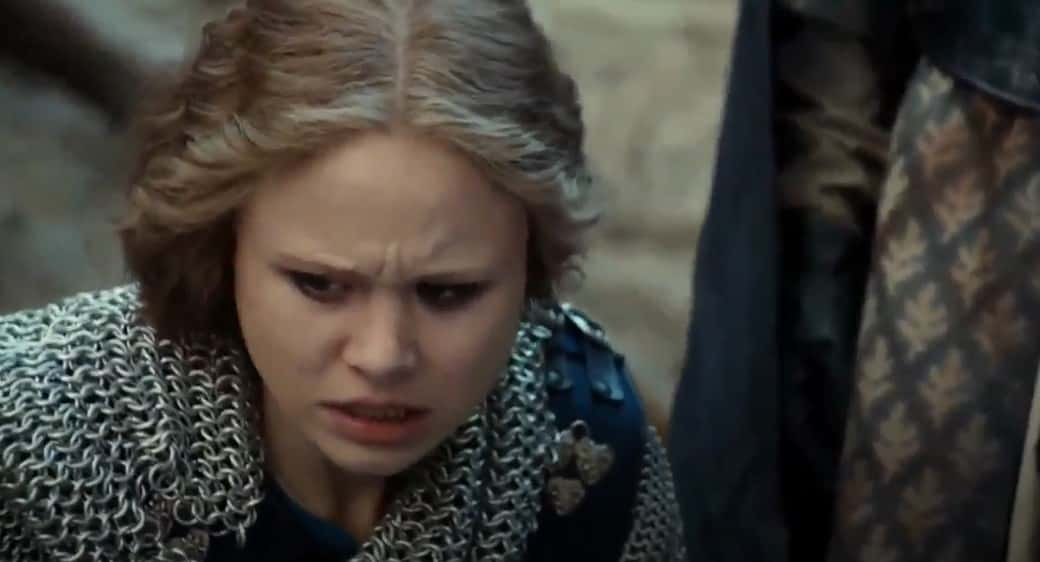 The Pillars of the Earth (2010), Tandem Communications
The Pillars of the Earth (2010), Tandem Communications
29. Her Family Betrayed Her
That man was Matilda’s cousin, Stephen of Blois. When news of the now-empty English throne reached him, Stephen immediately left for England with his men in tow. Although Robert of Gloucester, Matilda’s half-brother and avid supporter, tried to stop him, Matilda’s cousin managed to reach the edge of London by December 8. There, he completely threw Matilda under the bus.
 The Pillars of the Earth (2010), Tandem Communications
The Pillars of the Earth (2010), Tandem Communications
30. He Took Everything From Her
Once at the edge of London, Matilda was the victim of the ultimate act of betrayal. Her cousin Stephen of Blois seized power in England. The Londoners proclaimed Matilda’s treacherous cousin the new monarch, believing that the city would receive rights and privileges in exchange. On top of that, supporters of Matilda’s cousin successfully argued that Stephen, who had sworn loyalty to Matilda, never should’ve taken the oath.
They further argued that Matilda’s dad likely changed his mind about Matilda being his heir. If Matilda wanted to recapture her throne, she needed to think of a plan, and fast.
 The Pillars of the Earth (2010), Tandem Communications
The Pillars of the Earth (2010), Tandem Communications
31. She Became A Major Threat
From 1136 to 1139, Matilda stayed in Argentan, building up her household knights and establishing her power base. During that time, Matilda’s husband invaded and burned estates in Normandy, causing chaos in the region. As the threat of Matilda’s presence grew, Stephen created an informal alliance with King Louis VI of France and Theobald the Great to counter her.
From here, things quickly snowballed out of control.
 The Pillars of the Earth (2010), Tandem Communications
The Pillars of the Earth (2010), Tandem Communications
32. She Had Support On All Sides
In 1138, Matilda’s half-brother, Robert of Gloucester, who was one of the most powerful of the Anglo-Norman barons, rebelled against Stephen and declared his support for Matilda. His declaration triggered a rebellion in Kent, as well as in the southwest of England. Matilda’s husband took this chance to invade Normandy once again.
Another supporter of Matilda’s invaded the north of England. Soon, it was time for Matilda herself to join the fray.
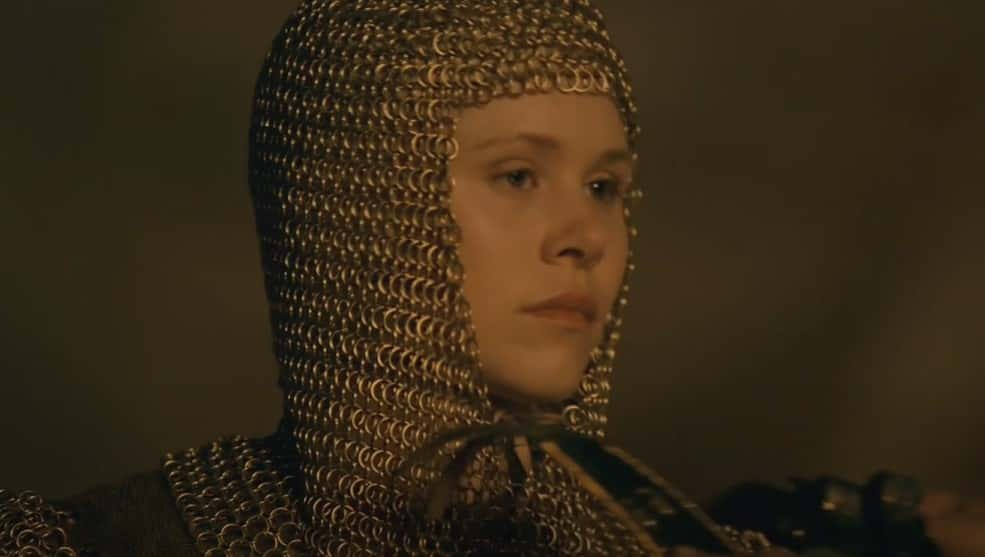 The Pillars of the Earth (2010), Tandem Communications
The Pillars of the Earth (2010), Tandem Communications
33. She Readied Herself For Battle
By 1139, it was clearly time for Matilda to assert her claim for the throne. Matilda and her husband managed to seize most of Normandy, and spent the beginning of the year organizing her forces with her half-brother. To further underscore the legitimacy of her campaign, Matilda appealed to the papacy, emphasizing that she had a legal claim to the English throne. By the summer of that year, Matilda was ready to take back what belonged to her.
 The Pillars of the Earth (2010), Tandem Communications
The Pillars of the Earth (2010), Tandem Communications
34. She Always Found Another Way
The beginning of Matilda’s invasion was rather rocky. One of her supporters attempted to capture an English port to serve as a landing point for Matilda’s knights, but his attempt failed. Luckily, Matilda’s stepmother invited Matilda, her half-brother, and her contingent of 140 knights to land at Arundel instead. Matilda’s half-brother left from there to garner more support for the Empress, while Matilda stayed at Arundel Castle. That’s when Stephen descended onto Matilda.
35. He Trapped Her
Matilda’s cousin swooped in and besieged Arundel, trapping Matilda inside Arundel Castle. Luckily for Matilda, Arundel Castle was nearly impregnable, but it was probably inconvenient for Matilda; after all, she had an invasion to run! As such, Matilda eventually agreed to a proposed truce. She left the castle and established her court in Gloucester, and continued to expand her influence. By 1140, Matilda’s power only was growing quickly—and striking fear into Stephen’s heart.
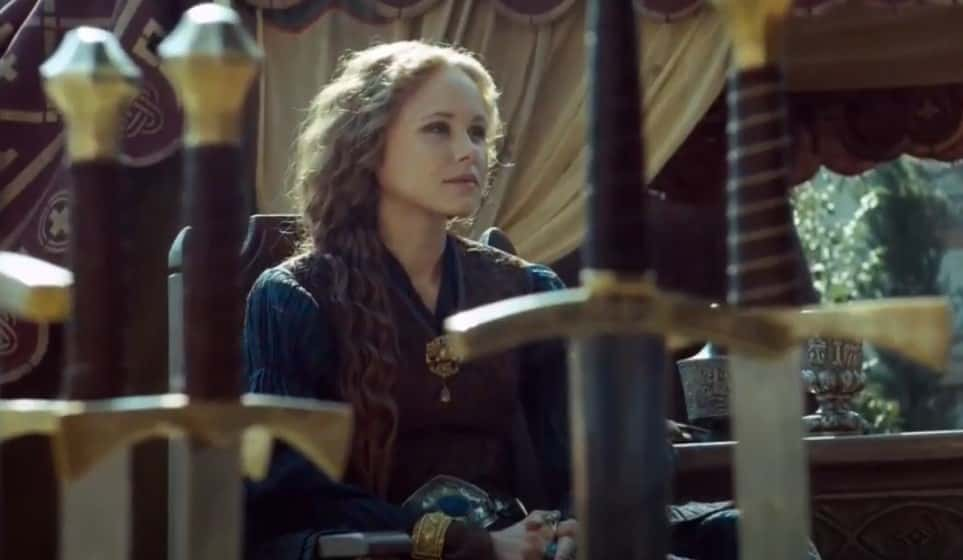 The Pillars of the Earth (2010), Tandem Communications
The Pillars of the Earth (2010), Tandem Communications
36. She Grew Powerful
In Gloucester, Matilda managed to attract more powerful barons to her cause, with only a few minor defections on her side. She controlled a stretch of territory from Gloucester and the south of Bristol into Wiltshire, and as far as Oxford and Wallingford, which was dangerously close to Stephen’s seat of power in London. If Matilda’s cousin wanted to come out on top, he could not afford to lose his allies—which is exactly what happened in 1141.
 The Pillars of the Earth (2010), Tandem Communications
The Pillars of the Earth (2010), Tandem Communications
37. She Found An Opportunity And Took It
In 1141, Ranulf of Chester, one of Stephen’s most powerful supporters, fell out of favor with the King. Stephen, in his infinite wisdom, besieged one of Ranulf’s castles as punishment. It was a fatal mistake. This presented an opportunity that was way too good for Matilda to pass up. Her men, under the command of Robert, joined forces with Ranulf on February 2, 1141.
One of the most important battles of Matilda’s campaign was about to begin.
 The Pillars of the Earth (2010), Tandem Communications
The Pillars of the Earth (2010), Tandem Communications
38. She Came Out On Top
Matilda’s and Ranulf’s combined forces both outnumbered and overwhelmed Stephen’s men. Although Stephen’s forces initially smashed through a number of Matilda’s infantry, Matilda had pure numbers and superior cavalry on her side—and it showed. Her men managed to encircle Stephen and his forces, completely overwhelming her cousin.
When everything settled, Matilda’s men captured Stephen. It was time for him to have an audience with the Empress.
 The Pillars of the Earth (2010), Tandem Communications
The Pillars of the Earth (2010), Tandem Communications
39. She Went All In
Matilda personally met Stephen in Gloucester before shipping him off to Bristol Castle, which traditionally held high-status prisoners. With Stephen safely put away, it was time for Matilda to get herself the English crown—which meant getting the Church to like her once again. Considering her past, the Church wasn’t all too keen to throw their support her way, but what they didn’t know was that Matilda had an ace up her sleeve.
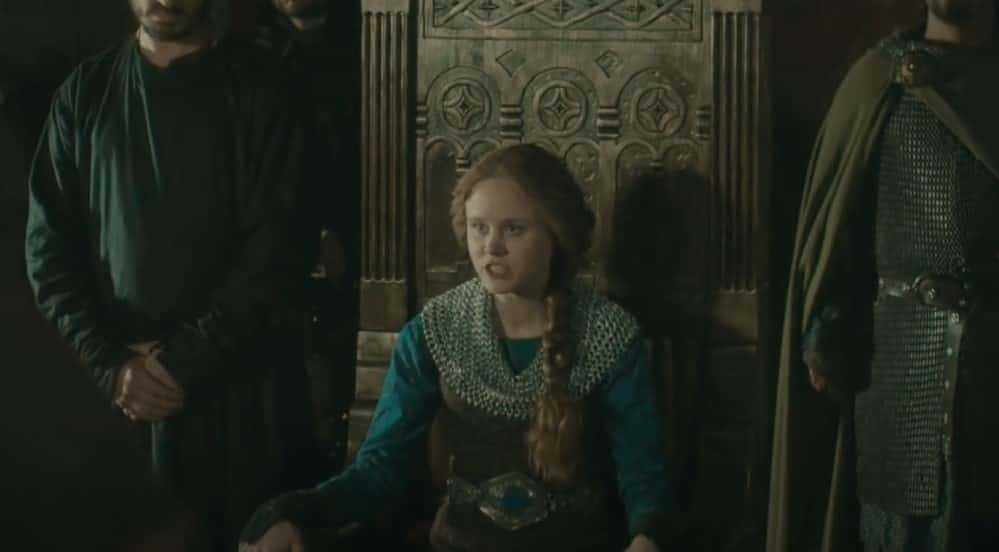 The Pillars of the Earth (2010), Tandem Communications
The Pillars of the Earth (2010), Tandem Communications
40. She Always Had A Plan
That ace turned out to be Henry of Blois, Stephen’s own brother. Behind the scenes, Matilda made a deal with Henry of Blois; if he got her the support of the Church, she would allow him control over Church affairs. Thanks to this, the Church “happily” supported Matilda. To sweeten the deal, a group of clergy and nobles went to see Stephen, who agreed to release his subjects from their oath of fealty to him. That didn’t solve all of Matilda’s problems, though.
41. She Was Incredibly Stubborn
On April 7, 1141, an event was held to declare Matilda the “Lady of England and Normandy,” as a precursor to her coronation. That’s when more trouble began for Matilda. While her followers attended, many major nobles were notably absent, and the delegation from the all-important city of London dragged their feet about attending the event. The citizens of London were also wary and fearful of Matilda.
The Empress pressed on anyway… And it nearly became her downfall.
 The Pillars of the Earth (2010), Tandem Communications
The Pillars of the Earth (2010), Tandem Communications
42. They Threw Her Out
Empress Matilda arrived in London, only to find a very unwelcoming and borderline hostile atmosphere awaiting her. Although Matilda had powerful supporters at her back, forces loyal to Stephen remained in the city. On June 24, tensions in the city exploded. London rose up against Matilda, forcing her to make a chaotic retreat to Oxford.
From there, Matilda’s fall from grace began.
 The Pillars of the Earth (2010), Tandem Communications
The Pillars of the Earth (2010), Tandem Communications
43. She Lost Her Allies
By the following year, Matilda’s alliance with Henry of Blois was crumbling. After a falling out over political and ecclesiastical policy, Henry of Blois changed his allegiances back to Stephen. Angered by his betrayal, Matilda besieged Henry of Blois at Winchester in July. What Matilda didn’t realize was that her actions had royally angered another powerful lady: Stephen’s wife. Matilda was about to meet her equal in the field of battle.
44. She Met Her Match
Stephen’s wife arrived with fresh men from London and advanced onto Matilda’s forces at Winchester. They quickly encircled Matilda’s men, soundly defeating her. Matilda managed to escape in the chaos of the battle, but her half-brother wasn’t so lucky. Matilda’s enemies captured Robert, forcing Matilda into hashing out a long-term peace settlement.
The talks between the two powerful women went about as poorly as you would expect.
45. Peace Eluded Her
On one hand, Stephen’s wife refused to compromise anything for Matilda. On the other hand, Matilda’s half-brother refused any terms that would support Stephen. After much back and forth, the two sides agreed to simply exchange the two men, putting Matilda back to square one. To make matters worse, Henry of Blois and the Church reversed their decision to support Matilda, and reaffirmed Stephen’s right to rule.
Matilda’s plans only continued to fall apart from here.
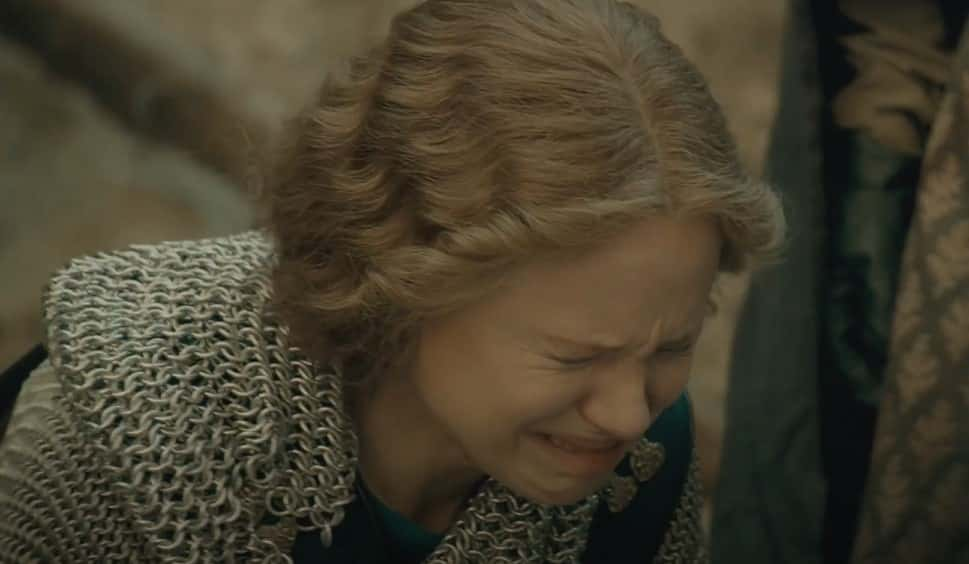 The Pillars of the Earth (2010), Tandem Communications
The Pillars of the Earth (2010), Tandem Communications
46. They Surprised Her
Matilda fell back to the walled city of Oxford, but she didn’t get the chance to stay long. In a surprise twist, Stephen led his men across the nearby river and made a sudden attack on the town. They trapped Matilda in Oxford Castle, determined to starve Matilda into submission. Matilda, of course, didn’t just sit around to see what would happen.
Instead, the wily Empress planned a daring and dangerous escape.
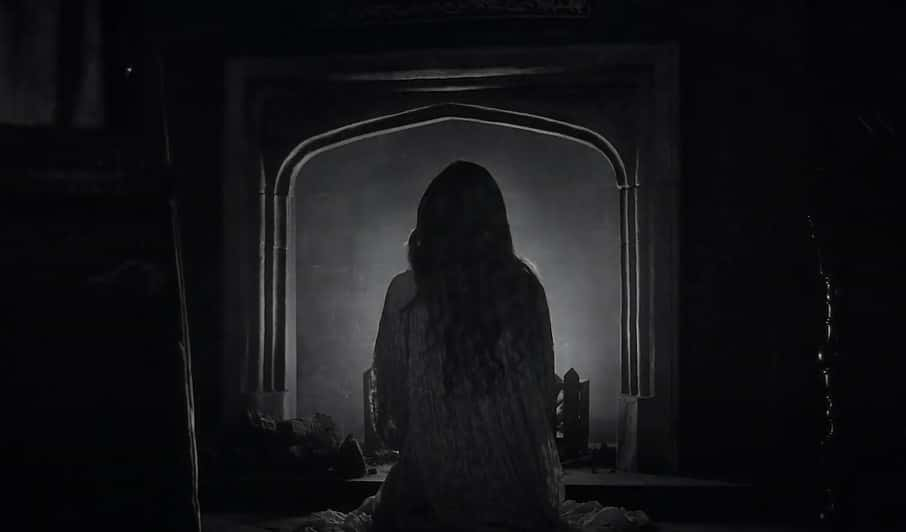 The Pillars of the Earth (2010), Tandem Communications
The Pillars of the Earth (2010), Tandem Communications
47. Her Plans Were Creative
On Christmas of that year, Matilda, along with a small number of knights, snuck out of the castle dressed in white. Blending into the snow, they crossed the frozen river, slipped past Stephen’s men, and retreated to Devizes Castle. Matilda settled into the castle, deciding that she had no choice but to accept that winning back the crown would take years.
She was determined to wait for as long as it would take, but the world had other plans for her.
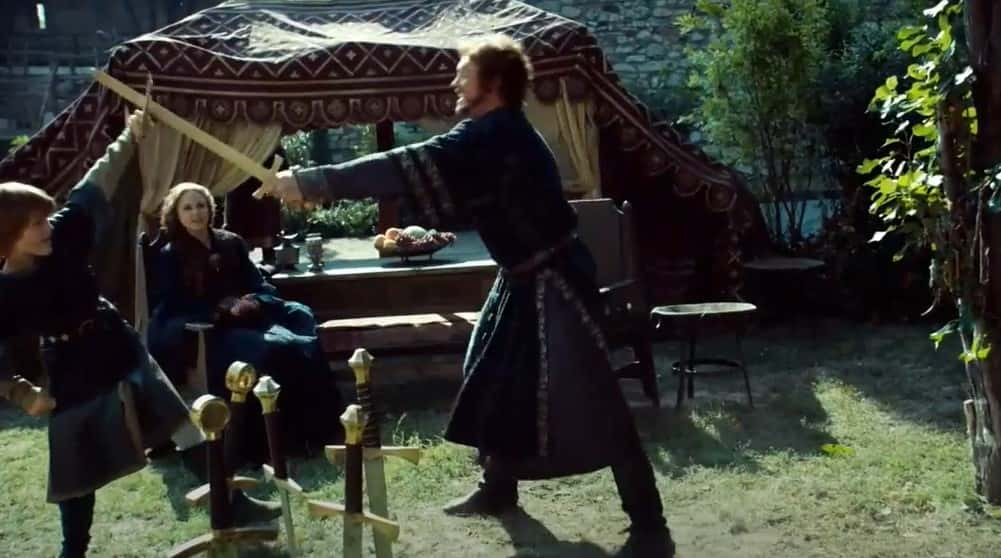 The Pillars of the Earth (2010), Tandem Communications
The Pillars of the Earth (2010), Tandem Communications
48. Time Passed Her By
For the next several years, Matilda was locked in a stalemate with Stephen. Neither side really gained the upper hand, and any peace talks quickly went nowhere. Although Matilda won a handful of victories (notably, she secured her hold on Normandy thanks to her husband), she was unable to actually consolidate her power.
Eventually, time marched on without her, and the key players of the conflict began to change.
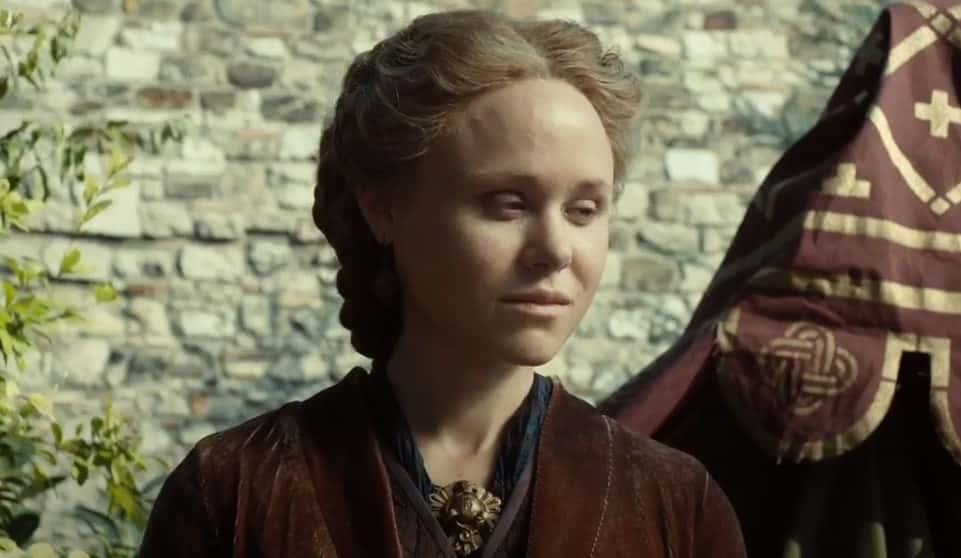 The Pillars of the Earth (2010), Tandem Communications
The Pillars of the Earth (2010), Tandem Communications
49. Her Son Took The Torch
As Matilda’s eldest son grew older, he assumed her position as one of the key players of the conflict. By 1148, Matilda returned to Normandy due to increasing pressure from the Church. With her son now leading the charge to retake the English throne, Matilda devoted her time to the administration of Normandy. When (spoiler alert!) her son eventually assumed the English throne, Matilda maintained her importance in politics, but her role had notably changed.
 The Pillars of the Earth (2010), Tandem Communications
The Pillars of the Earth (2010), Tandem Communications
50. She Left A Legacy Behind
Matilda spent the next two decades advising and representing her son while governing over Normandy. She devoted her time to Church affairs and her personal faith as well. She remained a powerful figure, but was reportedly more easy-going in her old age. When she finally breathed her last on September 10, 1167, her tomb’s epitaph summed up her legacy with the words: “Great by birth, greater by marriage, greatest in her offspring: here lies Matilda, the daughter, wife, and mother of Henry.”

